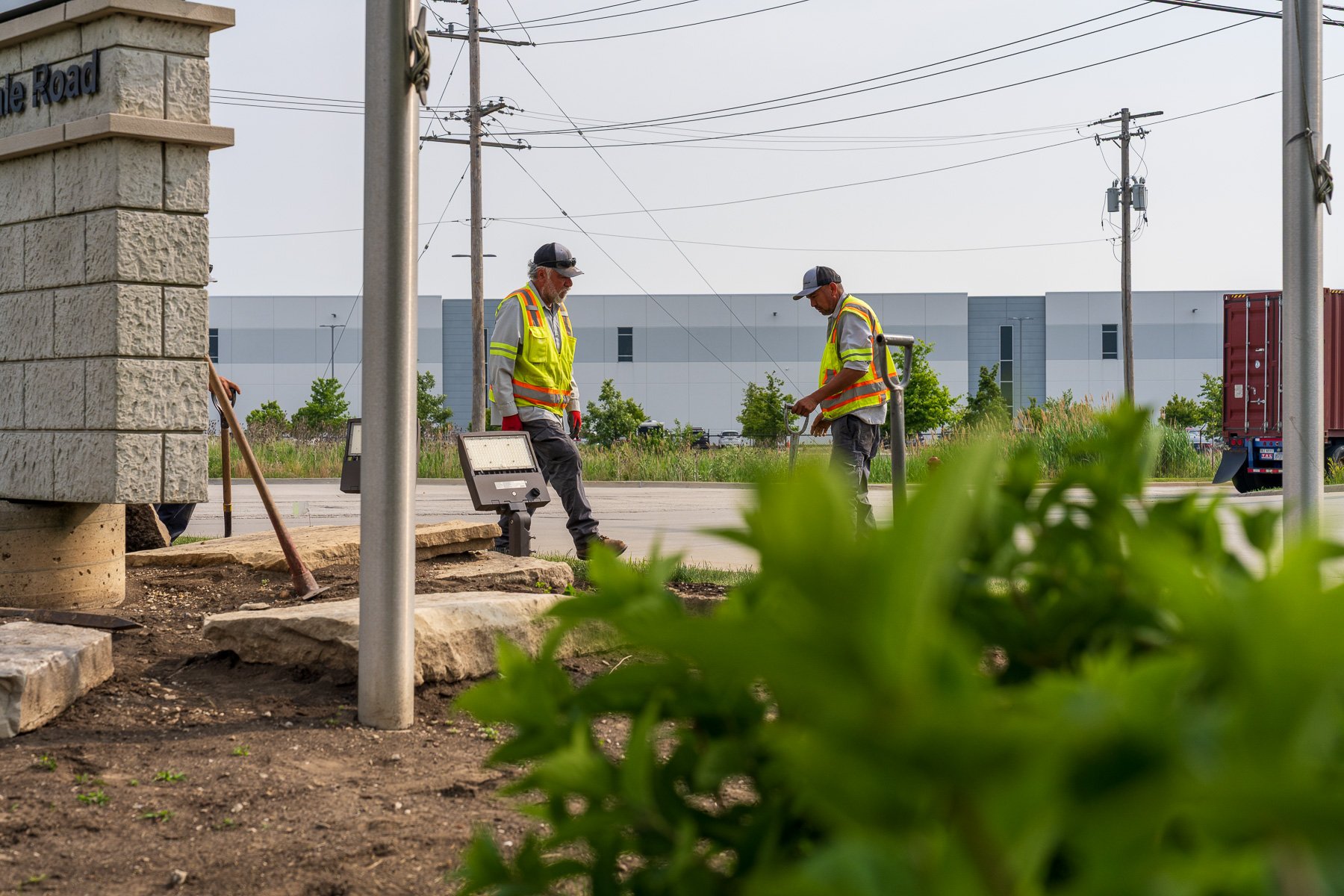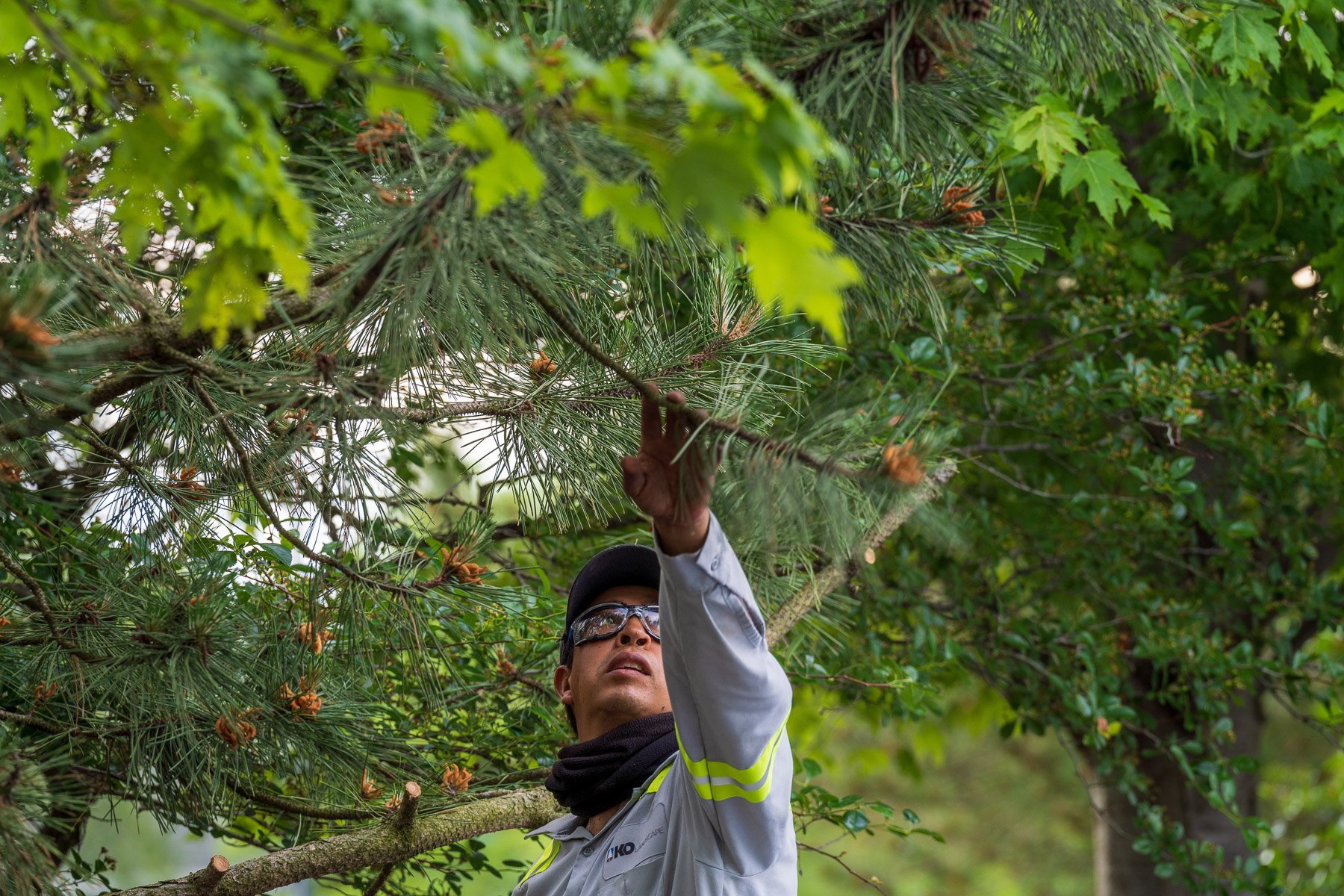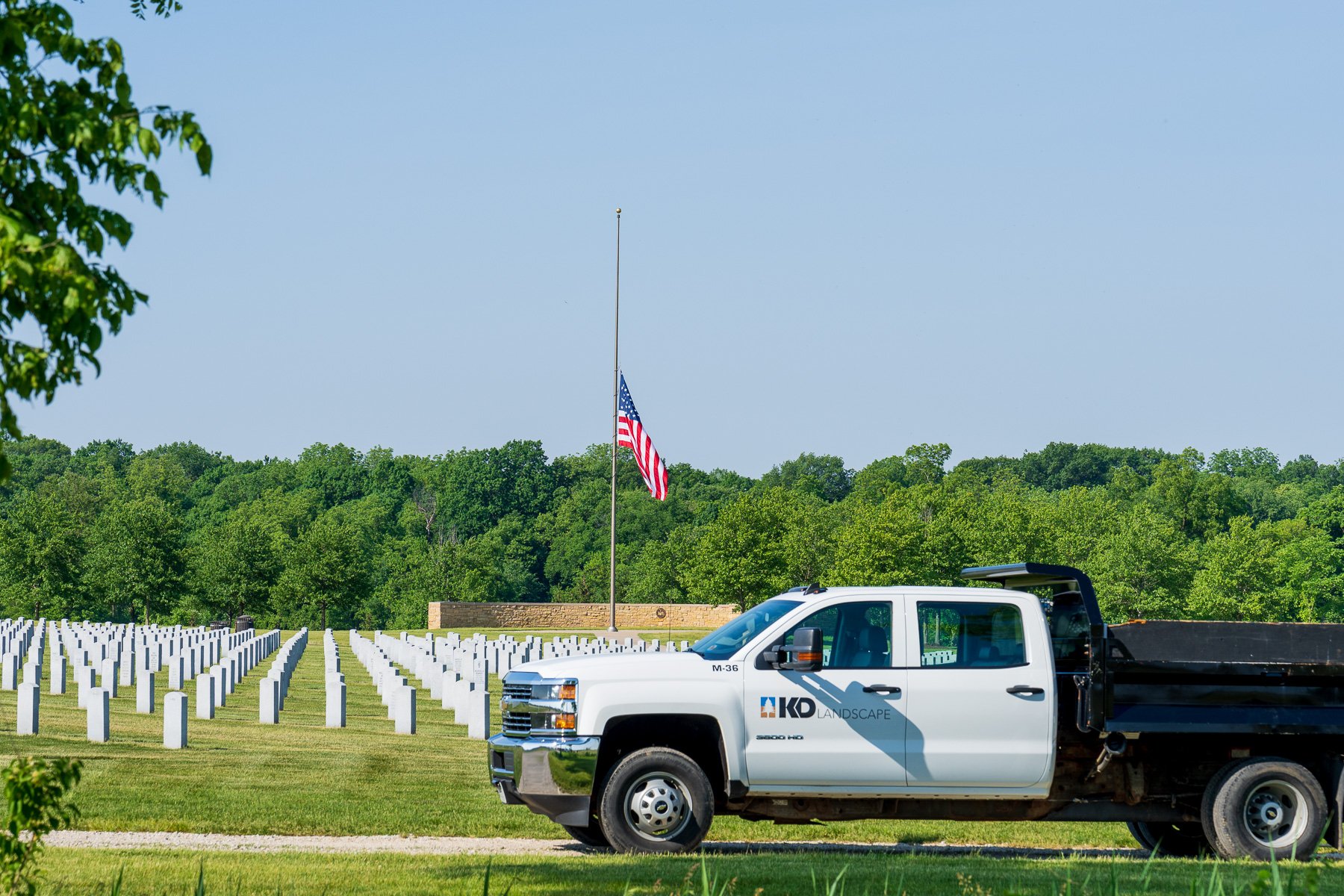An industrial facility with its vast turf expanses and regular deliveries and employee traffic is a special environment.
Landscaping can take a beating in this environment. But it is a big part of creating a positive, welcoming, professional-looking appearance.
What does that mean for you if you are the property manager? You have to stay on top of landscape-related issues.
Let’s narrow that to-do list of the most common industrial landscaping problems and how you can stay ahead of these issues to prevent bigger, more expensive problems down the road.
8 Frequent Industrial Property Landscaping Problems and Solutions in Greater Chicago
Industrial property landscaping can face quite a bit of challenging scenarios during its lifetime.
From vast concrete areas to regular foot and vehicle traffic to rain runoff, these outdoor areas can take a beating.
Let’s take a look at some common landscape problems and solutions you should stay ahead of if you manage an industrial facility.
1. Standing Water
It’s no big surprise that standing water would become an issue. They are instant trouble spots.
Not only can frequent standing water signal a nearby drainage problem, but water that stands for even only a few days can lead to increased mosquito populations. What’s more is that water will drag mud along with it … along walkways and into buildings. These areas basically become unusable.
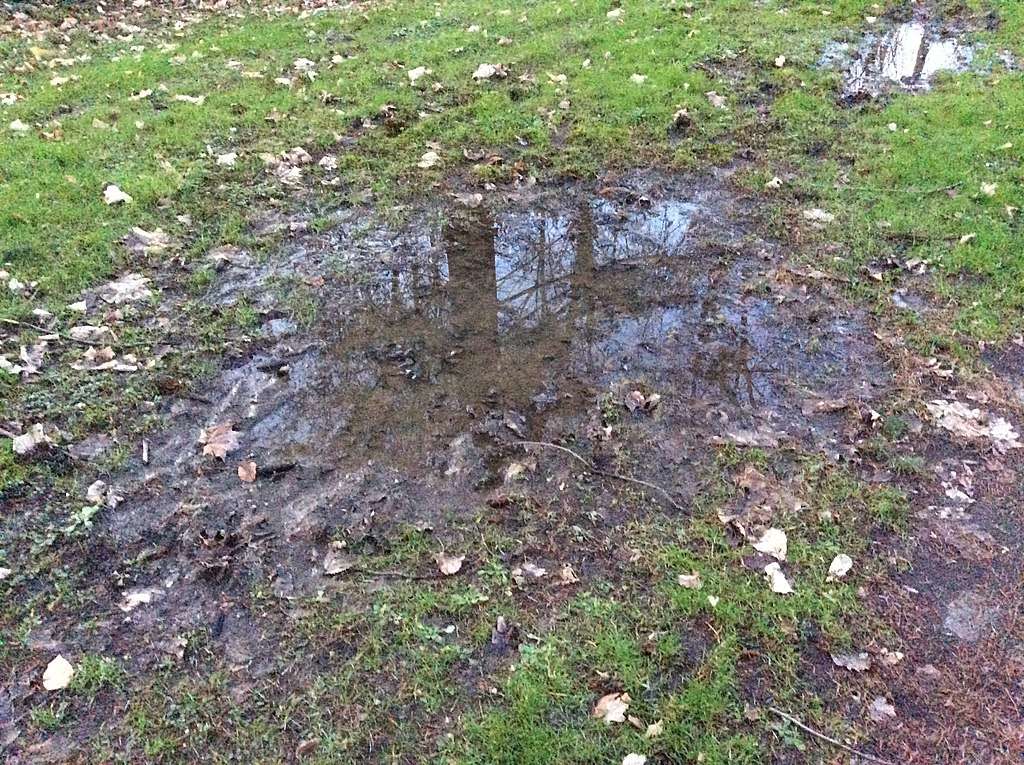
As with any industrial landscaping issue, standing water can start small and escalate into larger problems if ignored. Sometimes it takes some proper grading to fix the problem or manage the water flow. Other times, french drains, rain gardens or detention ponds can create a more permanent solution to a spot that tends to over-collect water.
2. Erosion
Like standing water, repeated rainfall on a property can lead to common issues.
If there is a hilly spot that isn’t graded properly or maybe a retaining wall nearby wasn’t built properly or is no longer doing its job, then mud and debris will continue to move and leak onto walkways and create additional issues.
These threats include trip-and-fall hazards and unattractive areas that no longer serve a useful or aesthetic purpose.
The solution to this industrial properly landscaping issue is to evaluate the cause of the issue and fix it before it becomes a bigger – and costlier – problem.
3. Overgrown Trees & Shrubs
Trees and shrubs on your industrial property landscaping that are left to grow wild can get unwieldy.
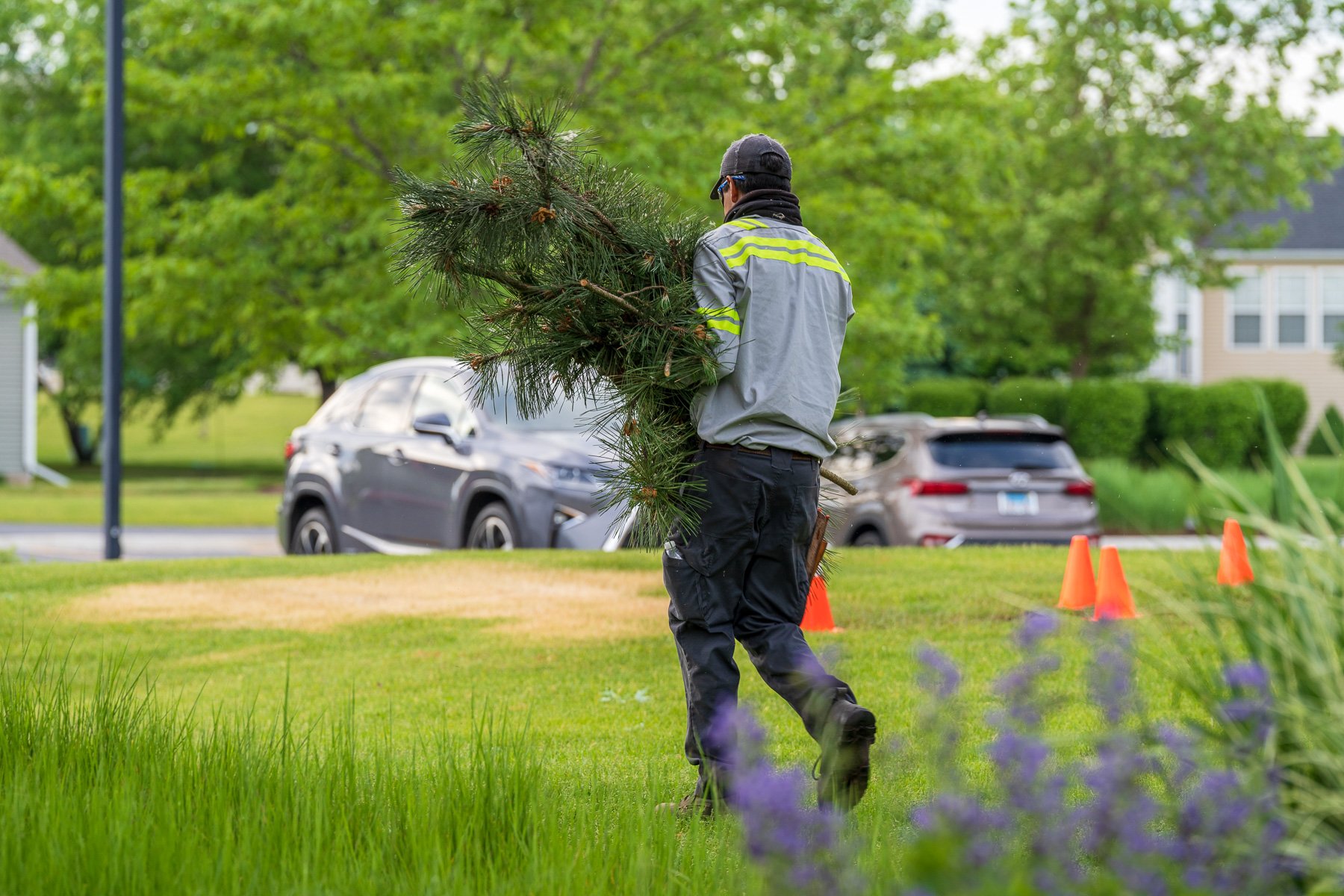
Not only are they unsightly, but they can also pose numerous safety and security hazards. Overgrown branches can get in the way of people walking on your site and block doorways, windows, and delivery bays, creating security risks.
The solution to this challenge is to prune trees and shrubs twice annually: early summer and fall. Additionally, dormant pruning —pruning during winter —can be less stressful on trees and help ensure healthier plants.
4. Hardscape Challenges
When concrete or hardscapes buckle or roots grow and disrupt walkways, uneven ground can result. This can lead to a liability issue for industrial property facilities.
To fix this, assess the issue and decide on the best long-term fix. For example, grading the soil, removing a tree that has impeding roots, or repairing hardscapes can be potential fixes for these situations.
Regularly checking hardscape stability and maintenance can help you stay ahead of safety issues in your industrial property landscaping.
5. Compacted Turf Areas
Unsightly grass can be a common problem in industrial landscaping. Compacted turf can cause everything from brown spots to weeds.
.jpg?width=1200&height=900&name=core-aeration-2%20(1).jpg)
Annual aeration and overseeding in the fall can help prevent compacted turf, keeping it healthy and helping you avoid costly turf repairs in your commercial landscape budget.
6. Dull Mulch
Annual mulch is a great addition to any commercial property. It helps keep weeds at bay, retain soil moisture for plants, and instantly freshens your property visually.
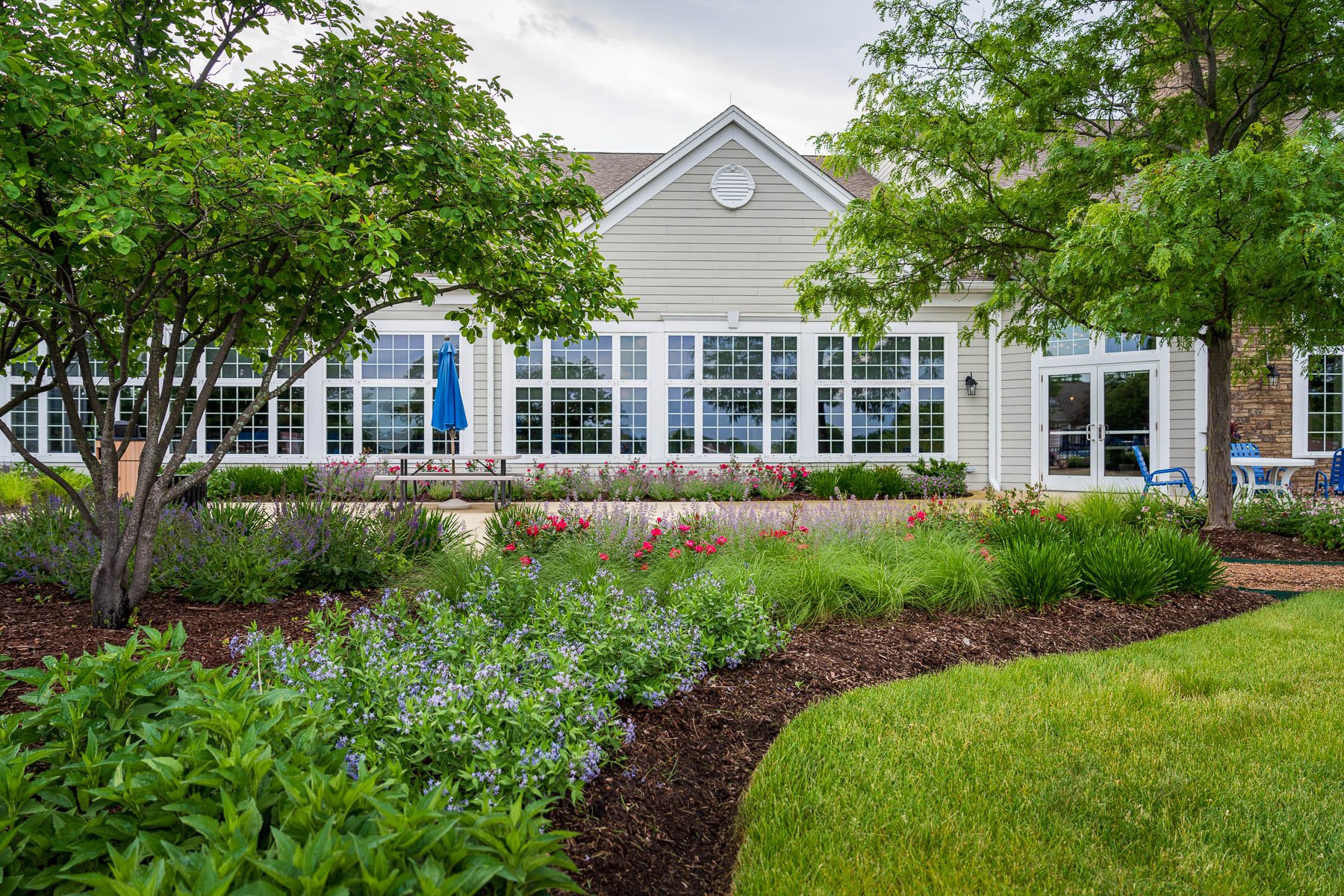
Annual mulch applications are your best bet for your industrial property landscaping. Make sure your service provider applies it properly and to an adequate depth each year.
7. Trash and Debris Cleanup
Trash pickup may seem like a simple one, but if left neglected for even a small amount of time, trash can pile up on industrial property landscaping. This trash includes twig and leaf litter that can result after a windy or stormy day.
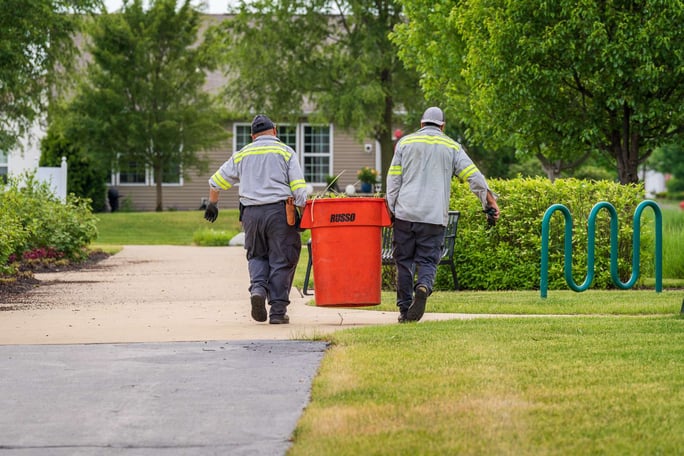
Stay ahead of this one by including trash pickup and spring and fall cleanups in your service package.
8. Uninspired Seasonal Color
A lack of color can dim your industrial property landscaping.
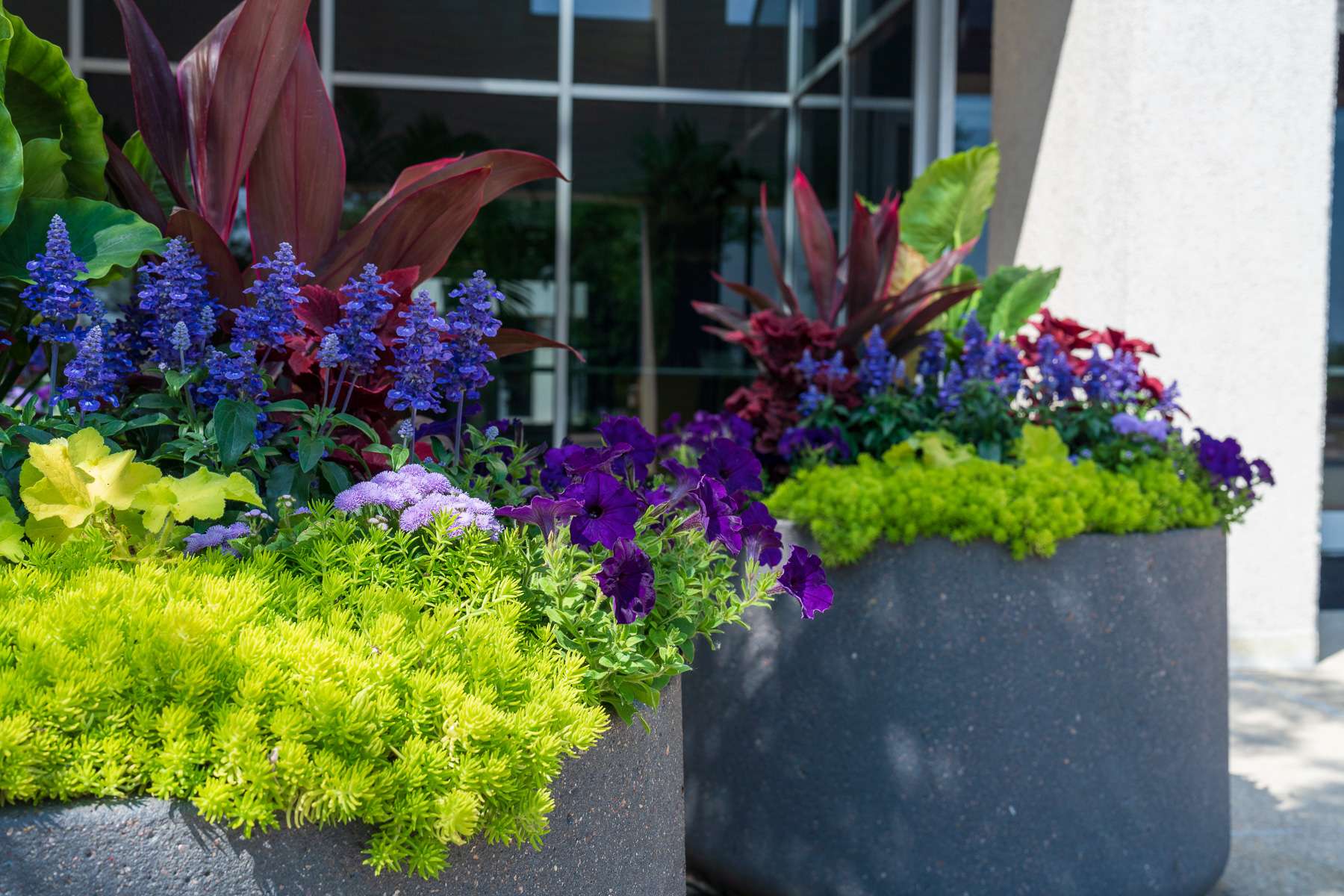
When done right, flowers designed and installed by a seasonal color or enhancement crew can bring a professional edge and greater attention to your property’s entryways. Well-designed seasonal color will stand out and have an immediate impact.
Let Us Help You with Your Industrial Landscaping Problems
We know you have many facilities and operations headaches that need your attention. Hopefully, this list helps you target the worst outdoor issues facing your industrial facility head-on, so you can feel more confident.
If you find you’re not sure where to start, give KD Landscape a call. We can provide industrial property landscape maintenance in Greater Chicago that proactively addresses your issues and keeps your landscape healthy and looking great.
Want a more beautiful, safer industrial property in Greater Chicago? Request a proposal for a customized plan. Together, we can help your facility look more professional and eye-pleasing. 
Image Source: Puddle



